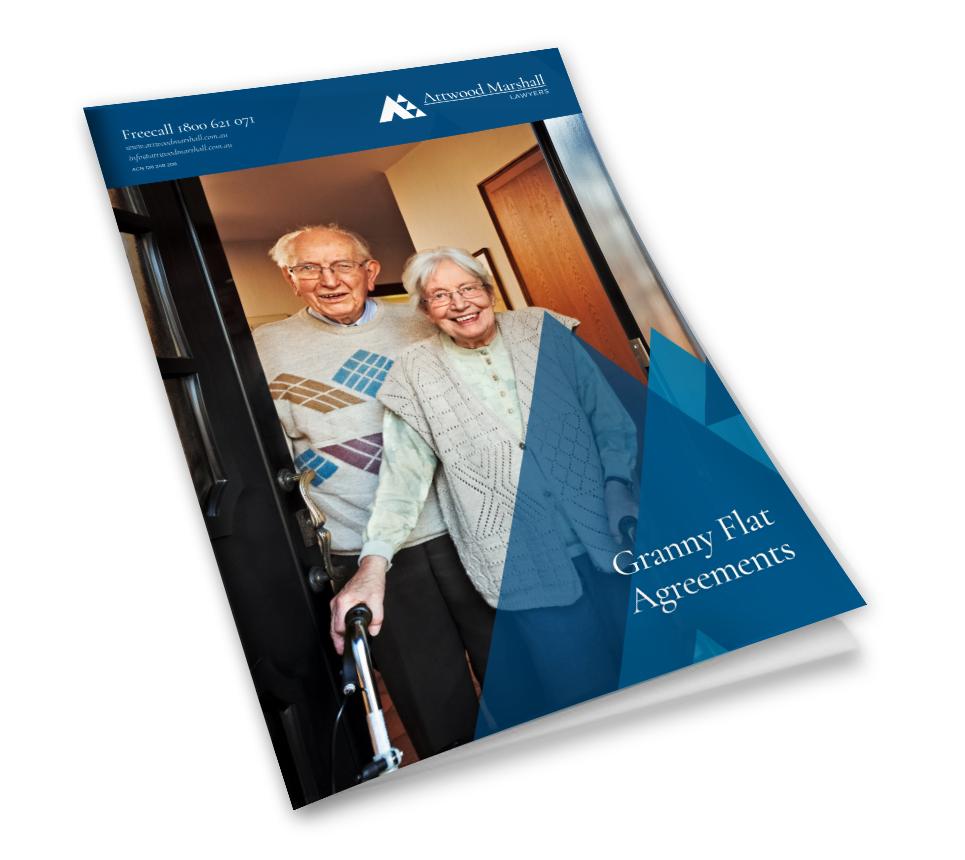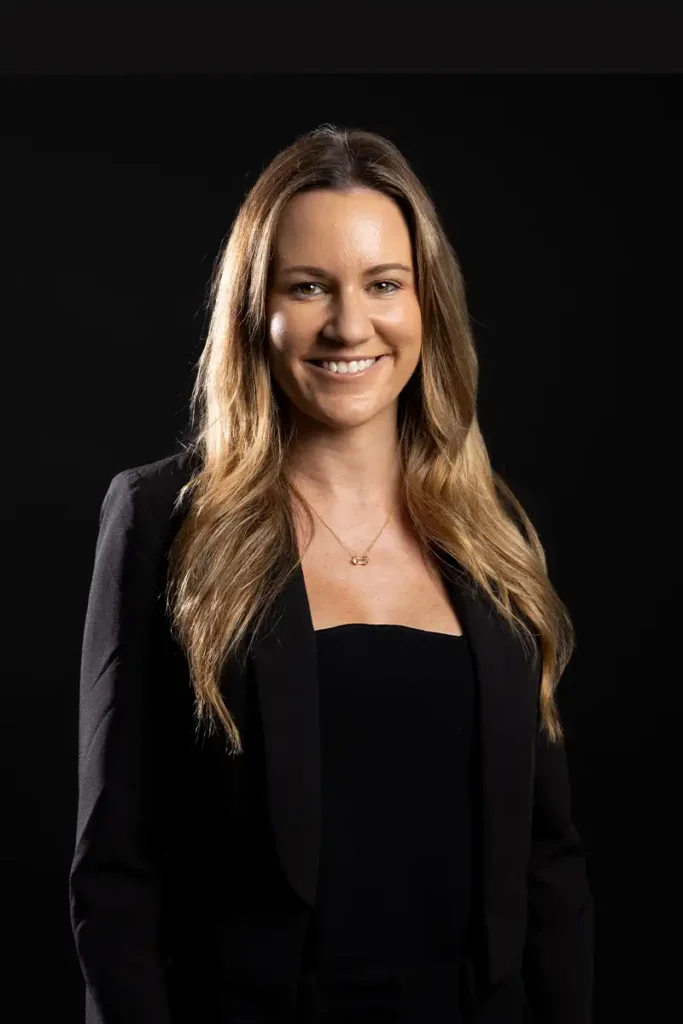Attwood Marshall Lawyers Wills and Estates Partner Angela Harry joins Robyn Hyland on Radio 4CRB for ‘Law Talks’ to talk about the rise in popularity of granny flats and what you need to consider when entering into a dual living arrangement.
The resurgence of granny flats
The concept of granny flats, dating back several centuries to what was historically known as the “dowager house”, has experienced a modern resurgence, particularly in Australia.
Originally, the dowager house served as a separate residence of an English, Scottish, Welsh, or Irish estate, designated for the widow of the estate owner after the passing of her spouse.
This arrangement ensured the widow could remain close to family and within familiar surroundings after the estate’s heir assumed control of the primary property.
The term “granny flat”, believed to have originated in Australia, embodies a similar concept to the dowager house, providing housing primarily for aging family members, affectionately known as “grannies”.
While traditionally associated with a self-contained unit on the same property as the main residence, the definition of a granny flat has evolved.
Under the granny flat rules established by Centrelink, these living arrangements can take various forms, including a separate dwelling, a converted garage, a separate structure, an extension to the existing property, or an area within a home.
The flexibility caters to diverse needs and preferences, making granny flats an increasingly popular option in today’s challenging housing market.
With the escalating cost of living, dual living arrangements and granny flats have garnered unprecedented interest among Australians and offer practical and affordable solutions in response to the evolving needs of families and aging individuals.
Advantages of granny flats
Granny flats offer many benefits that address various housing needs and challenges. Here’s our top five advantages worth noting:
- Alleviating housing market stress: Granny flats reduce stress on the housing market by providing additional housing options, easing pressure on rental markets, and lowering vacancy rates.
- Cost-of-living assistance: These living arrangements can help alleviate the cost-of-living crisis by offering more affordable housing solutions for homeowners and tenants.
- Supporting aging parents: Granny flats enable aging parents or grandparents to remain at home longer, delaying the need to move to aged care. Families can also benefit from having extended family under one roof, helping with young children as parents return to work.
- Extra income: Homeowners can generate additional income by renting the granny flat. This supplementary source of revenue can help offset rising mortgage costs or contribute to savings and investments.
- Cost-effective construction: Building a granny flat is considerably more economical than constructing a full-sized home. This affordability makes granny flats attractive for homeowners looking to expand their living space or property value without breaking the bank.
Rules and regulations
Before proceeding with constructing or renting a granny flat, it is crucial to be aware of the applicable rules and regulations, which can vary depending on your location.
In 2022, Queensland introduced new legislation to allow homeowners to rent out granny flats more easily, which has led to an increase in the number of people building granny flats.
The biggest issue often overlooked when these arrangements are in place between families is a formal agreement, otherwise known as a ‘Granny Flat Agreement’.
Granny flat agreements
A Granny Flat Agreement is a formal arrangement between a property owner and another party (usually between parent and child) to transfer an interest in property or money in exchange for accommodation for life.
The agreement typically outlines the purpose of the granny flat interest, the terms and conditions, including the duration of the agreement, the rent to be paid (if applicable), and the rights and responsibilities of both parties. It also specifies any provisions for termination, outlining the conditions under which either party can end the agreement.
It’s important to note that a granny flat interest only lasts your lifetime. It is not considered part of your estate upon death and cannot be included in your Will or passed on to a loved one.
While granny flat agreements may seem straightforward to document, they are more complicated than you might think.
Centrelink recommends that anyone entering this type of arrangement have a legal document drawn up to provide proof of the agreed-upon terms.
A lawyer who practices in this area understands the information that should be included in the agreement and can offer advice to ensure that both parties understand the terms they are entering.
A granny flat agreement should, at the very least:
- Be in writing,
- Confirm you have a right to occupy the property for life,
- Indicate an intention that the parties are legally bound by the agreement,
- Not be of a commercial nature.
The following should also be considered and included in the agreement:
- Whether any rent will be paid,
- Who will contribute to maintenance and other household expenses such as electricity, phone, garden maintenance, etc.,
- If the property is sold, the granny flat interest will be transferred to the new property,
- What happens if your health deteriorates and your care needs change (i.e. you need to move into an aged care facility),
- The level of care to be provided for the elderly family members,
- What happens if there is a disagreement,
- What happens if the agreement is terminated.
It is crucial to address these issues in a formal agreement to avoid potential conflicts or uncertainties in the future.
Centrelink benefits and your pension
Centrelink benefits are means-tested, meaning they are based on an individual’s financial situation and assets.
Usually, the proposed transfer of property or gift or funds would be deemed a gift and would affect a person’s pension entitlements. However, under the granny flat rules, you can transfer property (or money) to a family member for a lifetime right to reside in the home. Under the granny flat rules, such a transfer would be exempt from the usual deeming legislation by Centrelink.
For the granny flat rules to apply, certain conditions must be satisfied with Centrelink. These include:
- Advising Centrelink on what you transferred in exchange for the granny flat interest. This information is essential for Centrelink to know as they can determine whether they consider you a homeowner.
- How the granny flat interest is created. This information helps Centrelink determine whether they need to include the value of the interest in your asset test.
These factors will affect an individual’s eligibility for payments and how much they may be entitled to receive.
Centrelink will not consider you to have paid more than the granny flat interest is worth if you are:
- Transferring the title of your home and keeping a lifetime right to reside there or in another property.
- Paying to build a granny flat on someone else’s property.
- Paying to convert someone else’s property to suit your needs and getting a lifetime right to reside there.
- Buying a property in someone else’s name and getting a lifetime right to reside there.
Centrelink will apply what is referred to as the “reasonableness test” when you have either transferred extra assets or made a lump sum payment towards existing accommodation at someone else’s property where no construction or renovations have occurred.
Centrelink also uses it to see if you have paid more than the interest is worth to determine whether you have deprived yourself of assets.
Be aware that if you stop living in the property within five years of the date of the creation of the granny flat interest, Centrelink may review the granny flat interest and if the reason for leaving could have been anticipated at the time the interest was created, the depravation rules may apply to the contribution.
Due to the complexity of these agreements, it is strongly recommended that anyone entering a granny flat agreement seek the assistance of a financial advisor who is experienced in granny flat interests to give you financial advice on the arrangement and to liaise with Centrelink.
Granny flat agreements and estate planning
A granny flat agreement will impact your estate plan and should be considered and reflected in your Will and any Enduring Powers of Attorney.
Transferring property or gifting money out of your name during your lifetime, will mean it is no longer an asset you can gift in your Will.
It is not only vital for you to have up-to-date estate planning documents to factor such changes in your circumstances, but it is also important that the persons who have received the benefit of the transfer have up-to-date estate planning documents.
What happens if an agreement goes wrong?
As with all families and financial matters, things don’t always proceed as planned.
Whether one party wishes to sell due to financial needs or relocation, the general rule is that once established, a granny flat interest cannot be revoked simply because of a change of mind.
Sometimes, agreements end because of a dispute or circumstances beyond either party’s control, such as divorce, relationship breakdown, injury, or illness.
Navigating these complex issues requires upfront, open conversations at the outset and ensuring a comprehensive agreement is in place. Granny flat agreements often include provisions to address these issues should family relationships break down.
Attwood Marshall Lawyers – estate planning and property experts
As a leading estate planning law firm, we specialise in tailoring Granny Flat Agreements to ensure all parties have a comprehensive understanding of what the agreement involves and what their rights and obligations are under the agreement.
We want to help you protect your interests in property and effectively plan for the future. If you are looking to establish a granny flat arrangement with someone, we will help you consider all the relevant factors and draft a professional, legally binding document to give everyone peace of mind and assurance, all while ensuring you are complying with Centrelink’s rules.
For more information on Granny Flat Agreements or estate planning, please contact our Wills and Estates Department Manager, Donna Tolley, on direct line 07 5506 8241, email dtolley@attwoodmarshall.com.au or free call 1800 621 071 at any time.

Free Info Pack
To find out more about Granny Flat Agreements, simply provide your details below to have our Granny Flat Information Pack sent to your inbox.

